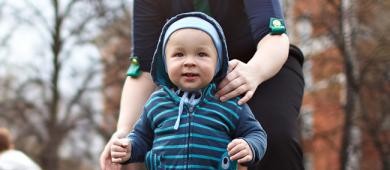<link href="https://cdn.sur.ly/widget-awards/css/surly-badges.min.css" rel="stylesheet">
<div id="surly-badge" class="surly__id_56779743 surly-badge_white-gradient" onclick="if(event.target.nodeName.toLowerCase() != 'a' && event.target.parentElement.nodeName.toLowerCase() != 'a') {window.open('https://sur.ly/i/parentingwithouttears.com/'); return 0;}">
<div class="surly-badge__header">
<h3 class="surly-badge__header-title">Content Safety</h3>
<p class="surly-badge__header-text">HERO</p>
</div>
<div class="surly-badge__tag">
<a class="surly-badge__tag-text" href="https://sur.ly/i/parentingwithouttears.com/"> parentingwithouttears.com </a>
</div>
<div class="surly-badge__footer"> <h3 class="surly-badge__footer-title">Trustworthy</h3> <p class="surly-badge__footer-text">Approved by <a href="https://sur.ly" class="surly-badge__footer-link">Sur.ly</a> </p> </div> <div class="surly-badge__date">2023</div>
</div>

Families with children are more than twice as likely to have been trapped in problem debt as childless households, research by The Children’s Society has revealed. One in five families with children in England and Wales (20 per cent) have struggled with problem debt in the last year. By comparison, the proportion of households without children who have fallen into arrears with one or more creditors is just under 8 per cent.
The families who have been behind on their debts – a total of 1.4m – are home to 2.4m children, and The Children’s Society is deeply concerned about the damaging impact of debt on their lives. In some cases children are going without basics such as food, clothing or heating, as well as suffering worry, anxiety and bullying.
Children in low-income families with multiple debts are at far higher risk of experiencing mental health problems than those in families who owe money to a single type of creditor. The most common source of problem debt is arrears on energy bills, followed by loans from friends and family, bank loans, and council tax. While the size of family debt varies, overall almost one third (29 per cent) of parents who have been in problem debt in the last year currently have arrears of more than £5,000.
While household budgets up and down the country are under strain, families with dependent children face extra pressures as they are more likely to face unexpected bills and are less able to cope with sudden financial shocks, caused by things like redundancy, reductions in working hours or illness.
The Children’s Society has found that problem debt is putting stress on family relationships, damaging children and trapping families in a downward spiral of borrowing.
As families begin to struggle financially, many feel that taking on credit is the only way to make ends meet. This often marks the beginning of a debt trap as credit repayments take up a larger proportion of income and families find themselves cutting back on essentials.
The Children’s Society’s new survey found that while debt is a problem for families in every part of England and Wales, some areas are struggling more than most. In the East Midlands, more than one third (36 per cent) of families with children have faced problem debt, while in the South East, 13 per cent of families with children have fallen behind with repayments.
The Children’s Society, as part of its Debt Trap campaign, is calling for changes to how creditors treat families with children who fall behind on bills and repayments. It is urging the Government to introduce a 12-month "breathing space" scheme to give struggling families a period of protection from additional charges, mounting interest and enforcement action while they seek advice, put their finances in order, and get back on their feet.
Today the charity is publishing a draft of a parliamentary Bill to make this "breathing space" a reality for hundreds of thousands of families. The Bill is being sponsored by Kelly Tolhurst MP and will be debated by MPs in the New Year.
For more information visit the Children's Society.